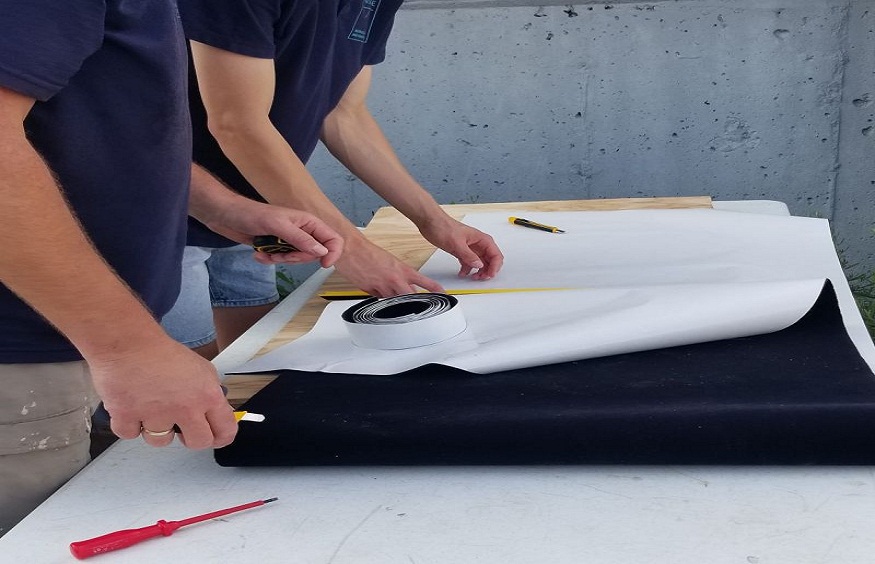The collection of aquatic organisms such as algae and barnacles on a vessel’s hull, known as fouling, raises drag, reduces fuel efficiency, and eventually raises operating expenses. An essential development is Finsulate, a non-toxic antifouling technology with significant financial advantages and environmental sustainability.
1. Lower Costs of Fuel Consumption
To maintain speed, vessels must burn more fuel due to increased drag caused by biofouling on the hull. Finsulate reduces drag for ships by stopping the growth of marine organisms without emitting toxic chemicals. Throughout the vessel’s life, the fuel consumption is reduced, resulting in significant cost savings.
2. Lower Hull Cleaning and Maintenance Costs
Traditional antifouling coatings typically degrade over time, requiring frequent reapplication and maintenance.Environmental issues and stricter requirements result from these coatings’ frequent reliance on biocides that seep into the water. In contrast, Finsulate is a long-lasting, non-toxic antifouling wrap that doesn’t require reapplication for years. Because of its longevity, maintenance expenses can be significantly reduced.
It can take days or even weeks to dry-dock vessels coated with conventional antifouling coatings so they can be reapplied. Shipowners must pay for both the reapplication procedure and the lost revenue during the downtime when dry-docking, which is costly. Because of its durable qualities, Finsulate lessens the need for dry-docking, extending ship operations and reducing lost income.
Frequent underwater hull cleaning, which can cost tens of thousands of dollars per session, might result from poorly managed biofouling. Because Finsulate is non-toxic, marine life is less likely to attach, requiring less frequent and thorough hull cleaning. Compared to conventional antifouling techniques, these savings compound up over time, resulting in a significantly cheaper total cost of ownership.
3. Regulatory Compliance and Avoiding Penalties
The sorts of antifouling paints that can be used have been restricted by numerous nations and regulatory organizations, including the International Maritime Organization (IMO). That is especially true for paints that contain biocides like copper. Ship operators may incur financial costs because of penalties, delays, and even vessel detentions for breaking these rules.
Shipowners can remain ahead of these restrictions because of the Finsulate’s non-toxic technique. By preventing fouling via a physical barrier, the device does away with the need for toxic biocides. This not only guarantees adherence to existing environmental laws but also lowers the possibility of fines in the future as laws become more stringent. Additionally, shipowners may be eligible for specific environmental sustainability incentives, rebates, or certifications by refraining from using hazardous chemicals, which can further offset costs.
4. Enhancing Vessel Longevity and Resale Value
A ship’s lifetime and operating effectiveness are greatly influenced by the integrity of its hull. In addition to requiring expensive repairs and perhaps shortening the vessel’s lifespan, prolonged biofouling can cause corrosion and hull damage. Finsulate prevents biofouling without causing hull damage, preserving the vessel’s structural integrity and prolonging its usable life. The vessel’s resale value increases and operational and maintenance expenses decrease with a well-maintained hull.
A ship’s market value may increase when sold if it has a history of less hull damage and requires less maintenance because of efficient Innovation Award winning non-toxic antifouling from Finsulate. Ships that exhibit long-term operational efficiency and reduced maintenance requirements are more appealing to buyers, which increases the appeal of insulated ships on the secondary market.
Conclusion
Finsulate’s non-toxic antifouling technology has numerous economic advantages. Finsulate provides a financially viable substitute for conventional antifouling techniques by cutting fuel consumption and maintenance expenses, guaranteeing regulatory compliance, and increasing vessel longevity. Its creative strategy offers shipowners and operators financial savings. Finsulate is a prominent figure in the development of antifouling technology as the marine sector continues to place a high priority on both financial viability and environmental stewardship.

